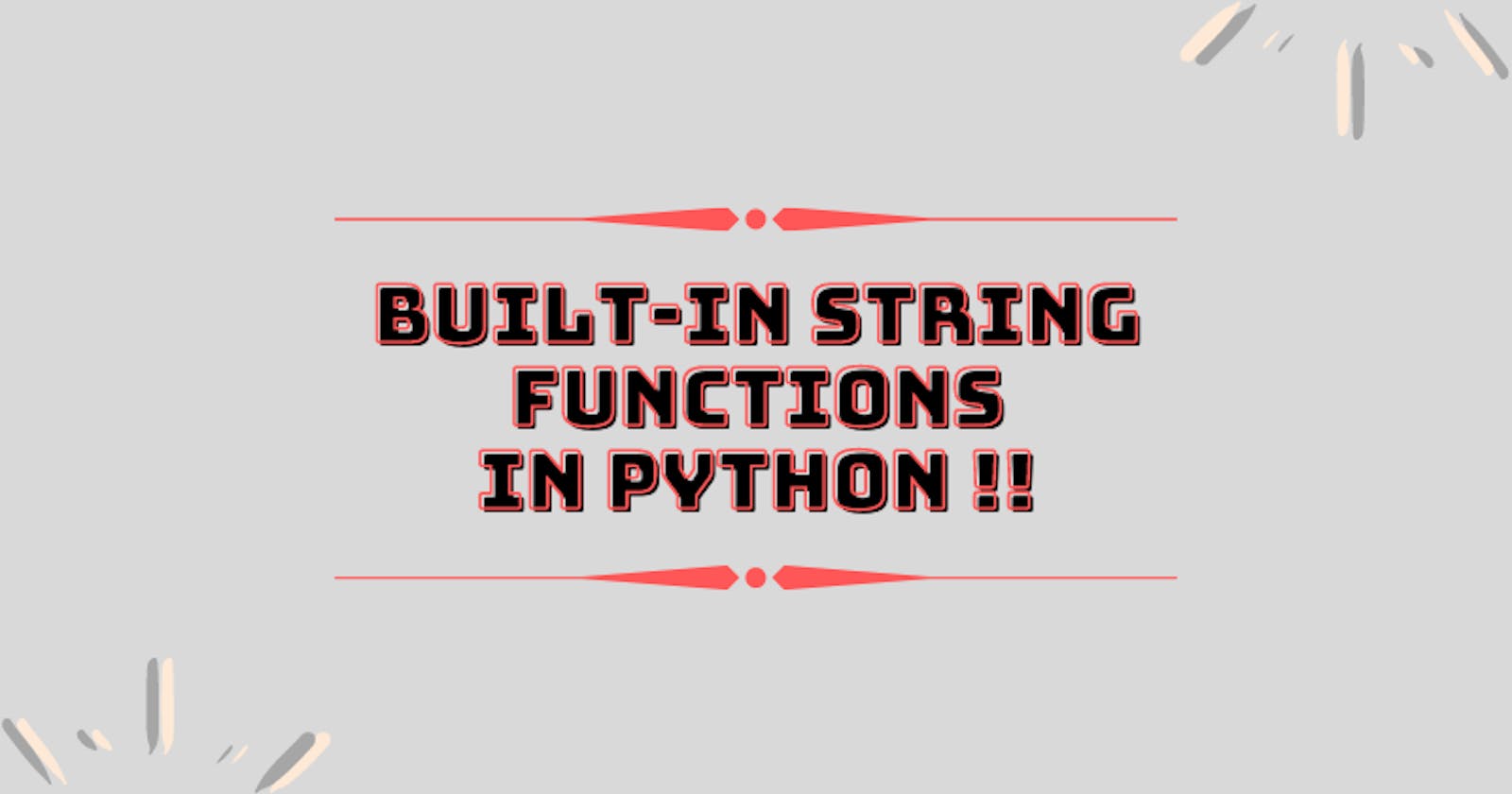Previously, we discussed about strings and the various operations on strings. Now, we are going to discuss the Built-in or the predefined functions on strings.
count function
This function is used to count the occurrences of a character or sub-string in a string.
EXAMPLE

find function
This function is used to find the first index of the string or character in another string. If the function fails to find the desired sub-string or character, it returns -1.
EXAMPLE
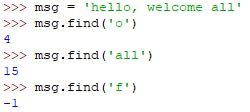
rfind function
This function is used to find the last index of the string or character in another string. If the function fails to find the desired sub-string or character, it returns -1.
EXAMPLE
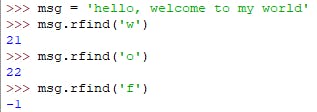
capitalize function
This function is used to convert the first letter of a string to uppercase and the remaining letters in the string to lowercase.
EXAMPLE

title function
This function is used to convert the first letter of every word in a string to uppercase and the remaining letters in the string to lowercase.
EXAMPLE

lower and upper functions
These functions are used to convert all letters in a string to lowercase and uppercase respectively.
EXAMPLE
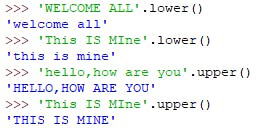
swapcase function
This function is used to convert all uppercase letters in a string to lowercase and vice versa.
EXAMPLE

islower and isupper functions
These functions are used to check whether all letters in a string are lowercase and uppercase respectively.
EXAMPLE
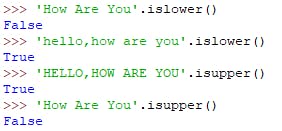
istitle function
This function is used to check whether a string is in the title case or not.
EXAMPLE

replace function
This function is used to replace part of a string by another string. It takes two arguments; first specifying the sub-string to be replaced and the second specifying the sub-string that replaces it.
EXAMPLE

lstrip, rstrip and strip functions
lstrip and rstrip functions are used to remove whitespaces from the beginning and end, respectively.
EXAMPLE
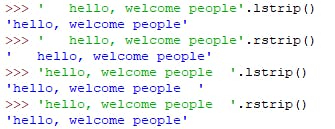 strip function can be used to remove whitespaces from both beginning and end. It can also be used to remove any other characters either from beginning or end from a string passed as an argument in the function.
strip function can be used to remove whitespaces from both beginning and end. It can also be used to remove any other characters either from beginning or end from a string passed as an argument in the function.
EXAMPLE

split function
This function is used to split a string into a list of strings based on a delimiter. If no delimiter is specified, python uses whitespaces as default.
EXAMPLE

partition function
This function is used to divide a string into two parts based on a delimiter and return a tuple comprising of string before delimiter , delimiter itself and string after delimiter.
EXAMPLE

join function
This function is used to join a sequence of strings.
EXAMPLE

isspace, isalpha, isdigit and isalnum functions
These functions are used to check whether a string comprises of whitespaces, alphabets, digits or alpha-numerics only. They return boolean values upon evaluating.
EXAMPLE
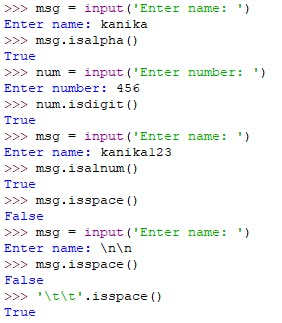
startswith and endswith functions
These functions are used to check whether a string starts or ends with a particular string. They return boolean values upon evaluating.
EXAMPLE
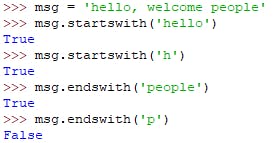
encode and decode functions
These functions are used to encode and decode strings on the basis of a given coding scheme.
EXAMPLE

That's it for strings. Hope you guys are following and keeping up the practice!!
